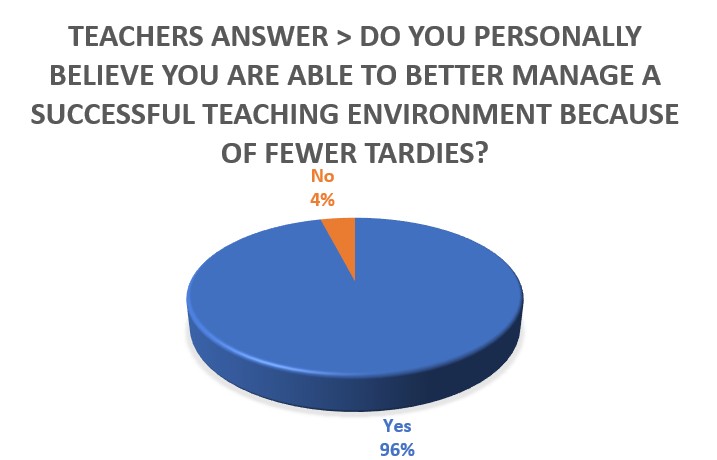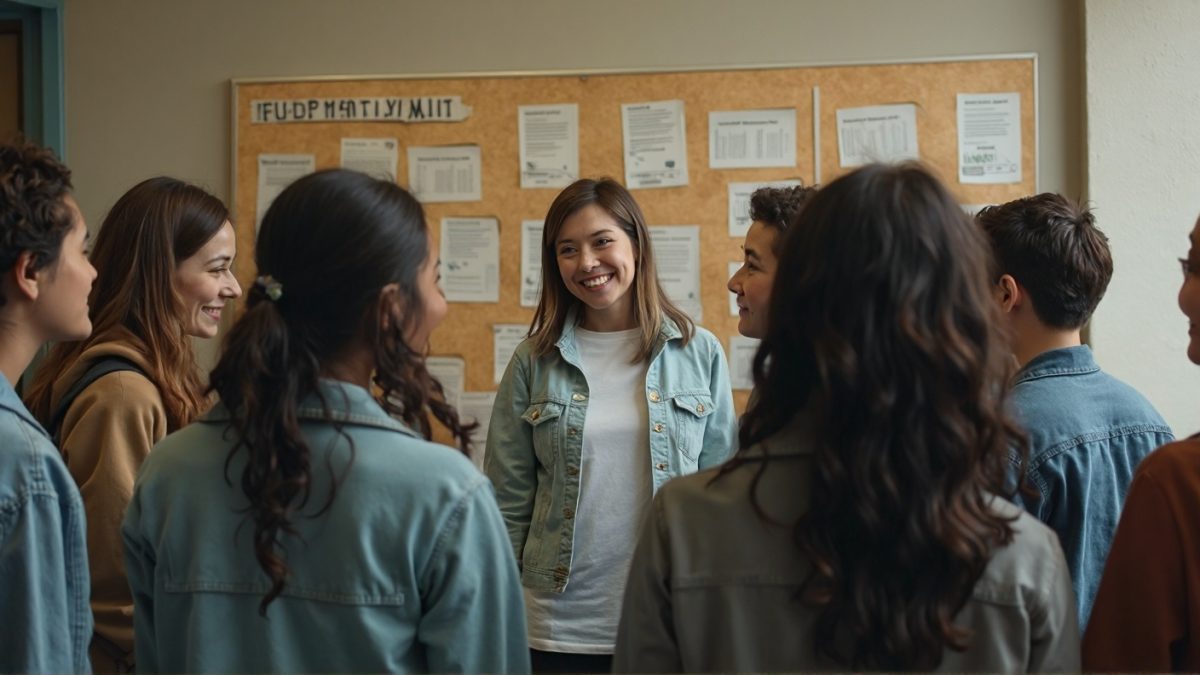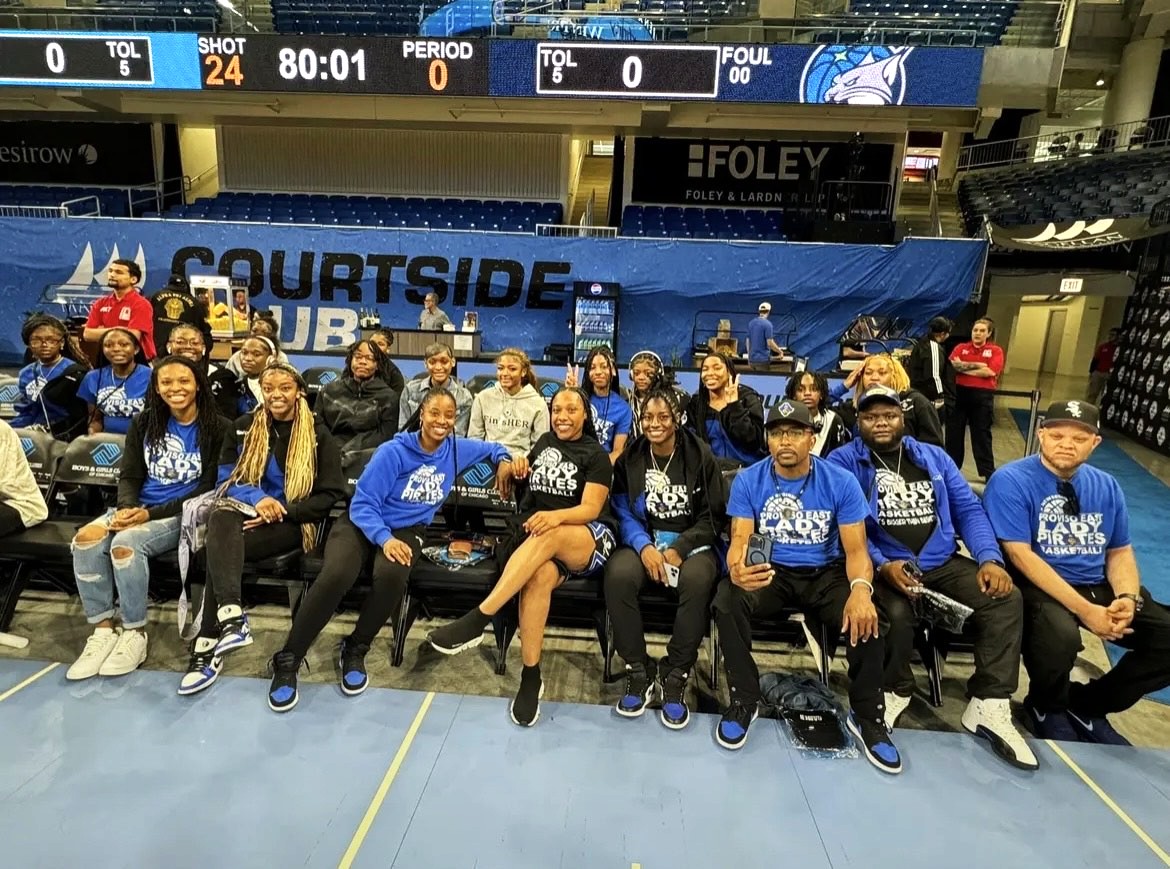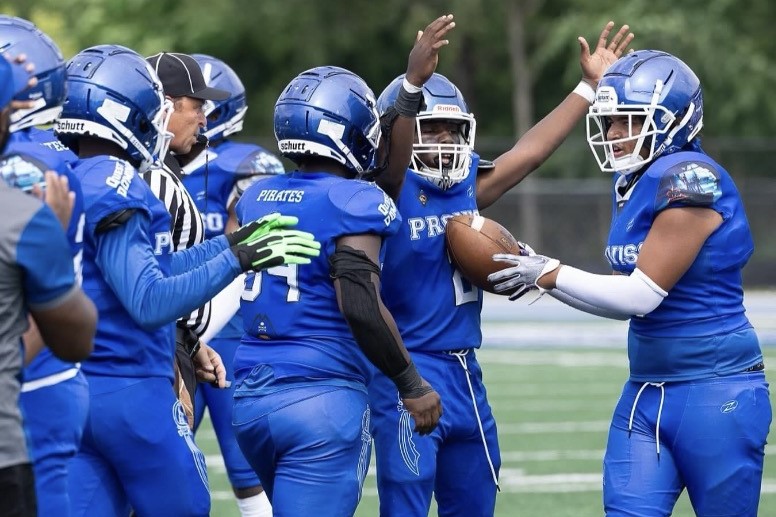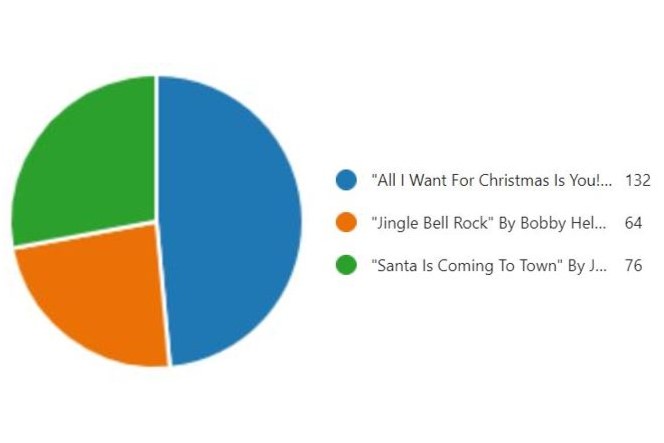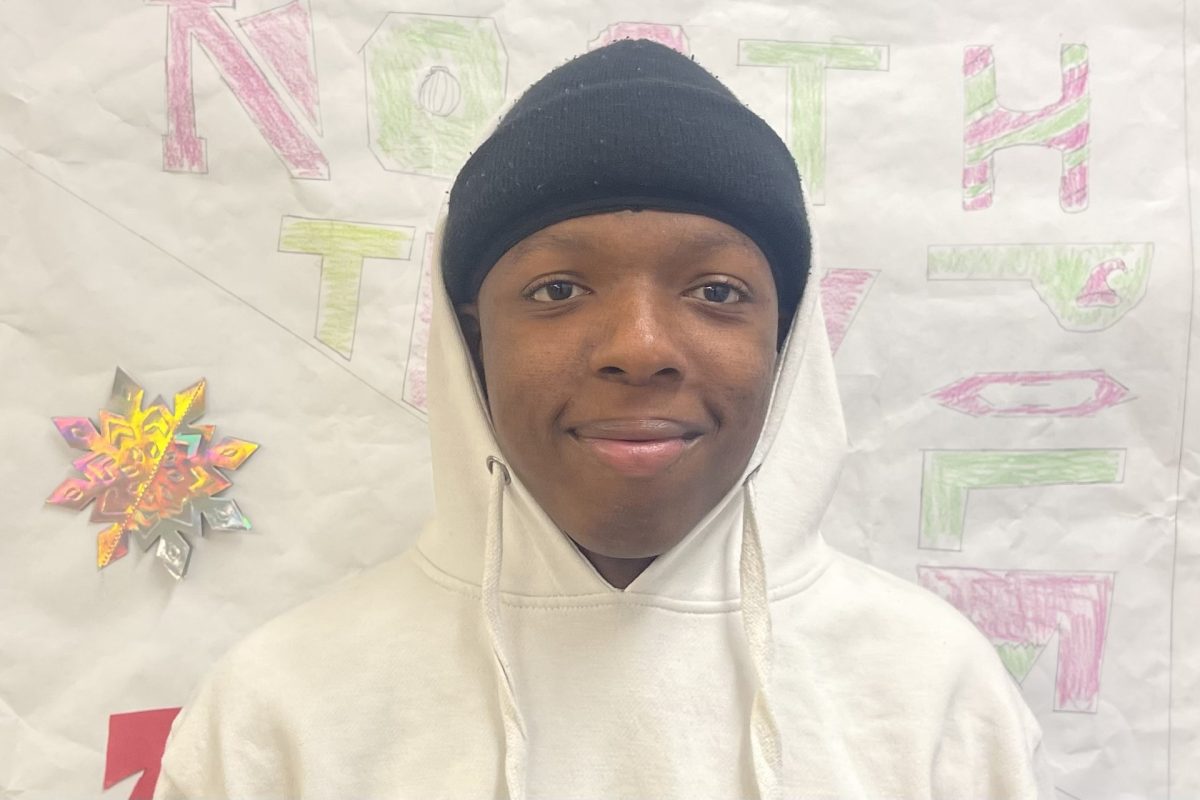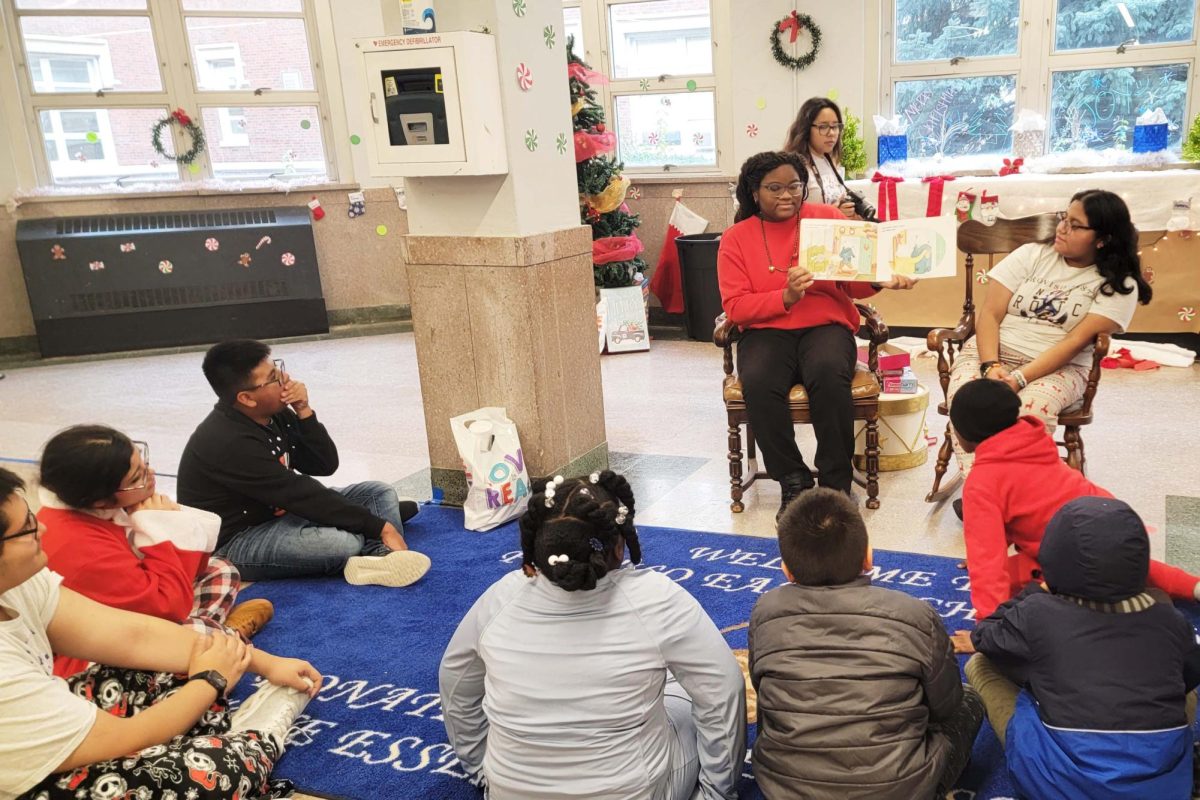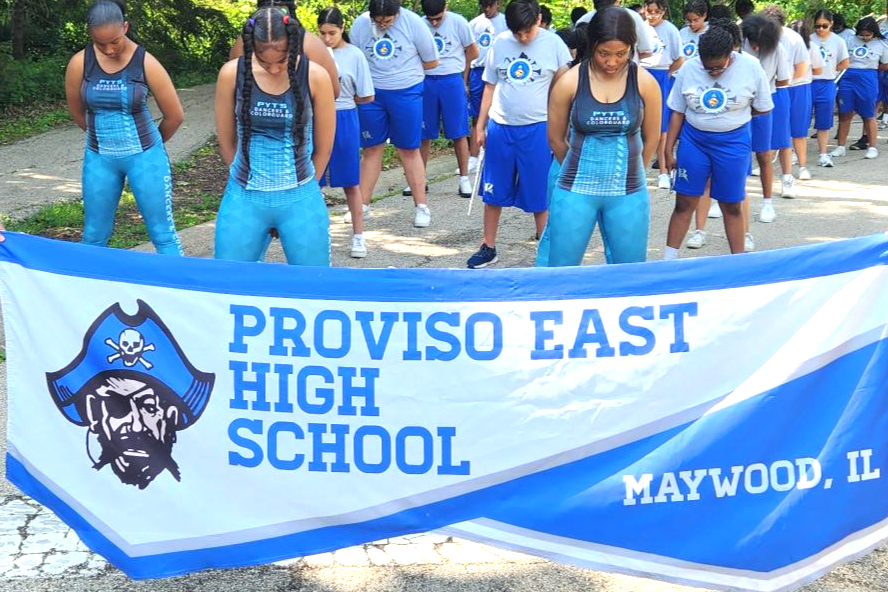Proviso East High School has seen much progress over the year, with Principal Rodney Hall’s enforcement of the tardy policy playing a significant role in this progress. Based on last year’s data, Proviso has achieved a “Commendable” designation for the first time since the Illinois State Board of Education began rating schools in 2018.
This marks a huge milestone for the school, and the enforcement of the tardy policy may further progress. However, while the enforcement of the tardy policy has proved promising, there have been differing opinions among students and teachers.
The enforcement of the tardy policy has resulted in many improvements, such as with a decreased 8% in chronic absenteeism, as highlighted in the Proviso Press Release. Despite this, some students feel as if this enforcement is too harsh and negatively impacts their performance. The enforcement has, however, been well received by teachers who have seen improvement in their classrooms and their teaching firsthand. To gain insight into these opinions, we interviewed numerous students as well as conducted a survey consisting of 229 students at Proviso East.
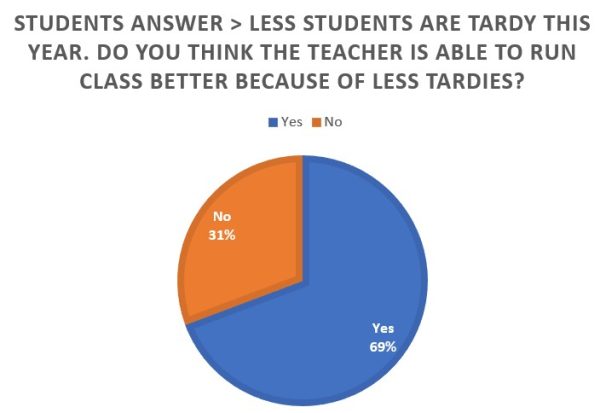
One student, Jessica Camacho, is a senior at Proviso East, believes the policy is hurting her academic performance due to the implemented In-School-Suspension when a student reaches a certain number of tardies. When asked how it has affected her, she said, “I can’t do my work, and I’m losing grade points because I don’t know what’s going on in class.” While many students feel the same way, our poll suggests that most students have been positively impacted by it, with 56% of students stating their work ethic has improved and 44% stating it hasn’t.
In contrast, some students like Sheylines Martinez, also a senior, feel the policy has forced them to take accountability. “Last year was my junior year, and I was absent (from first period) every single day,” Martinez explained. “I nearly failed my first period. Now, I have to be here on time, so I can pass.” The urgency is a main goal of the tardy policy, encouraging students to take responsibility for their education and attendance.
Another student, Karina Cardenas, a sophomore, shares a more nuanced view. She understands the need for the policy but feels the consequences are too harsh, especially for first-period tardies. “For first period, they shouldn’t have suspension or lunch detention. For other periods, it’s okay since we’re already here.”
Students remain divided by the tardy policy, with some seeing the drive it has brought within them, while others believe it’s unfairly penalizing them and negatively affecting their performance.
While students have mixed opinions; teachers share a pretty collective opinion. According to a teacher survey made up of 25 teachers, 94% believe the enforcement of the policy is a positive action. The strong support for the enforcement suggests that teachers feel that a productive and effective learning environment is being created.
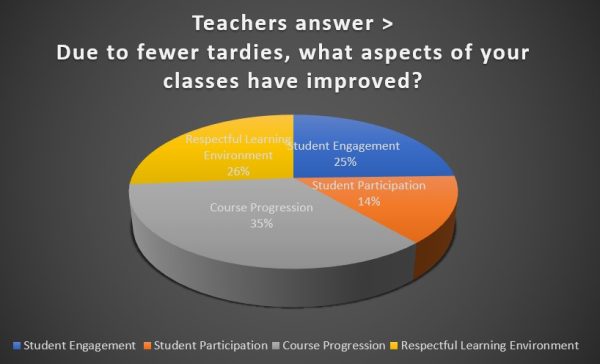
In fact, one teacher, Coach Melissa Donelly, adds that the tardy policy has positively impacted her class because of fewer tardies, stating that last year there were “constant interruptions of students coming in late.”
The policy is also taken well by other teachers, with 96% who believe fewer tardies improve their ability to run the class. In fact, when asked what aspects of the class have improved, 20 teachers out of 25 chose “Course Progression”, followed by 15 choosing “Respectful Learning Environment”, 14 choosing “Class Engagement” and 8 choosing “Student Participation.”
While it’s clear that the policy has addressed and resolved many issues, it also highlights the need for a more flexible approach—one that considers both the needs of the school, and the realities students face every day. Finding a middle ground that encourages student success and responsibility while fostering an effective learning environment for teachers is key to the long-term success of Proviso East High School.



